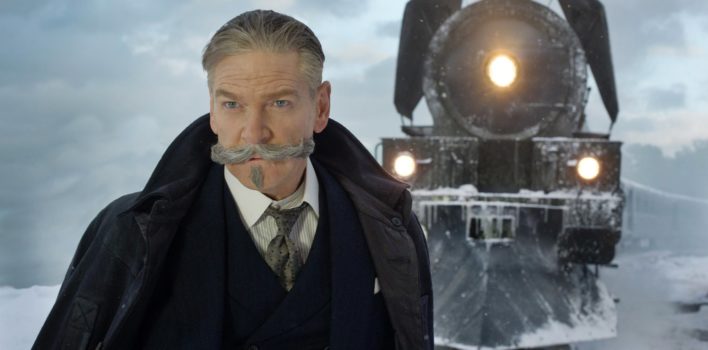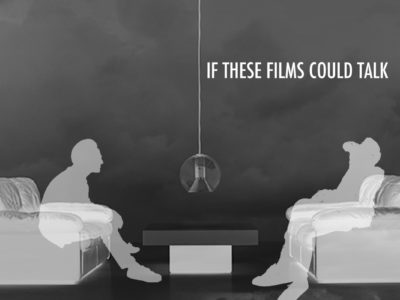Review| Murder on the Orient Express
 Kenneth Branagh started his prolific career as a stage actor, and while he has since gone on to make a name for himself as a filmmaker, his cinematic endeavors make it abundantly obvious that Branagh has lost no love for theatre proper. For one, much of his work as a director has been devoted to adapting Shakespeare (and other classic works of literature) for the silver screen. But what truly betrays Branagh’s love for the stage— from his remake of Disney’s Cinderella (2015), to his directorial debut, Henry V (1989)—is the beautiful theatricality that pervades his films. Indeed, his latest effort, Murder on the Orient Express (2017) is no exception to this rule. It is a tremendously handsome film that bears Branagh’s signature style in every frame; immaculate costuming, striking set design, and visually arresting compositions abound—not to mention the star-studded cast. In spite of the fact, however, that Murder on the Orient Express is a puzzle with all the right pieces, it is a film that regrettably fails to fit together as a unified whole.
Kenneth Branagh started his prolific career as a stage actor, and while he has since gone on to make a name for himself as a filmmaker, his cinematic endeavors make it abundantly obvious that Branagh has lost no love for theatre proper. For one, much of his work as a director has been devoted to adapting Shakespeare (and other classic works of literature) for the silver screen. But what truly betrays Branagh’s love for the stage— from his remake of Disney’s Cinderella (2015), to his directorial debut, Henry V (1989)—is the beautiful theatricality that pervades his films. Indeed, his latest effort, Murder on the Orient Express (2017) is no exception to this rule. It is a tremendously handsome film that bears Branagh’s signature style in every frame; immaculate costuming, striking set design, and visually arresting compositions abound—not to mention the star-studded cast. In spite of the fact, however, that Murder on the Orient Express is a puzzle with all the right pieces, it is a film that regrettably fails to fit together as a unified whole.
Branagh takes center stage in this film, portraying the world’s greatest detective, Hercule Poirot, who hops aboard the ill-fated train in search of some solace, a bit of respite from all his sleuthing. Of course, there is no rest for the weary, and Poirot soon finds himself investigating the murder of fellow passenger, Edward Ratchett (Johnny Depp). Each of the Express’s passengers prove to be hiding something, and the clues continue to pile up for Poirot, who must work quickly to catch the killer.
It’s difficult to say precisely where Orient Express goes slightly off the rails (train pun). It is, for the most part, a delight to watch Branagh play Agatha Christie’s unflappable Poirot, yet Branagh’s iteration of the character is burdened by a grief-laden, forlorn backstory about lost love, etc. that feels wholly unnecessary and unwelcome, given the way the rest of the film plays up Poirot’s eccentricities to such comedic effect. In one moment watch him measure breakfast, making sure his eggs are the same height; in another instance, he wakes up sporting a ridiculous mustache protector. Yet, a few minutes later we watch him longingly stare at (and, you guessed it, talk to) a picture of his long-lost lover. It’s an attempt at nuance for a character who needs none. This is but a small example of a larger problem for Murder on the Orient Express.
The film, on the whole, feels quite tonally dissonant. The first act is filled with levity, as characters are introduced and we watch Poirot pull of his “smartest man in the room act” with a delightful self-assuredness. Aboard the train, things get darker, more somber, and, well, less fun. The film is never able to strike a balance between these witty, banter-y moments and the more measured tone, and it’s difficult at times to take the latter seriously, when everything seems to fall into Poirot’s lap at precisely the right moment.
In another unfortunate turn of events, the film makes woefully inadequate use of its tremendously talented and seasoned cast. Sure, we delve into several characters’s backstories, but these moments are presented in the most banal, uninteresting manner possible: black and white flashbacks. It’s a shame we were deprived of seeing Judy Dench or Olivia Colman act circles around the rest of the cast by relaying their crucial character information on-screen. Alas, the few moments we do spend with the train’s passengers are either completely wasted (i.e. a chase scene with Josh Gad’s character) or far too short.
In spite of its shortcomings, however, Murder on the Orient Express isn’t, as it were, a complete train wreck. It’s just lamentably mundane and mostly forgettable—a perfectly passable popcorn flick that won’t demand another minute of your attention when the credits start rolling. And fans of Branagh’s theatrical sensibilities (who isn’t really?) will find much at which they can gander. There is at least one very interesting use of a bird’s-eye shot, and both the snowy landscape and the interior of the train itself are pristine and altogether pleasing to the eyeballs.
Along the way, Murder on the Orient Express asks a few questions about the nature of justice. I could—because this is Reel World Theology, after all—talk about our innate longing for justice, and how the film laments the limited efficacy of human systems of justice. But the film forces these themes home with such a bland directness that a lengthier exploration is neither merited nor warranted. That just one more reason why your trip on the Orient Express will likely be forgotten, even if it was fun at the time.







